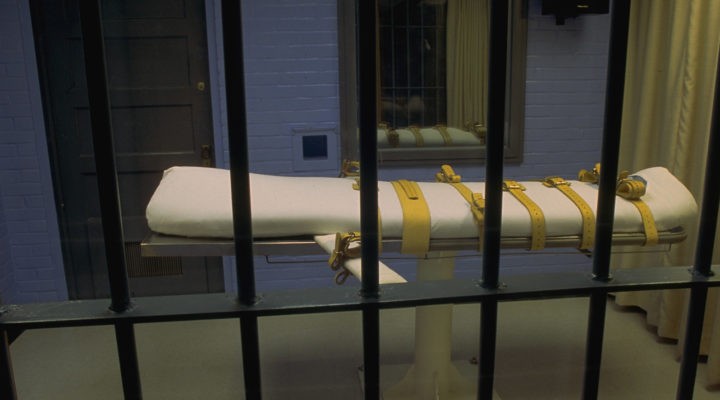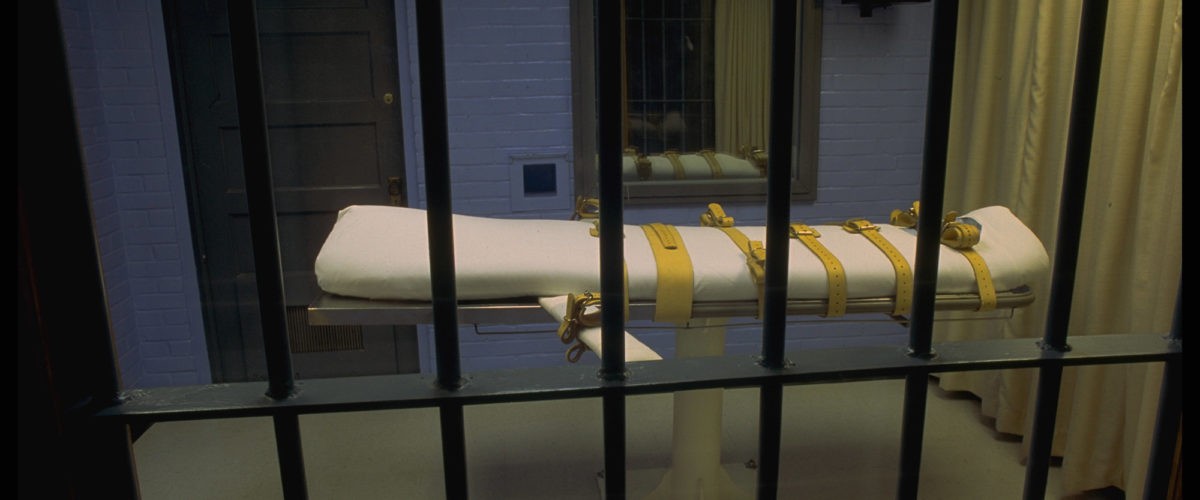The already dying American capital punishment system could be eradicated much sooner if evangelical Christians would stop supporting the practice, a Christian death penalty abolitionist said during a Sept. 10 webinar hosted by Equal Justice USA.
“I remember hearing from Shane Claiborne, who’s an author and activist, who said if tomorrow morning every evangelical Christian in the United States woke up and was against the death penalty, by that evening it would be over. And that’s true. The death penalty is so strongly supported by evangelical Christians that they are helping it continue,” said Sam Heath, manager of EJUSA’s evangelical network.
Heath and EJUSA Death Penalty Director Sarah Craft used the “Death Penalty 101” webinar to provide a historical overview of executions in the U.S., to share execution statistics and to debunk myths many Americans use to rationalize support for capital punishment. The session was co-sponsored by the Faith Leaders of Color Coalition, Eighth Amendment Project, Bend the Arc Jewish Action of California, Witness to Innocence and the Christian Community Development Association.

Sam Heath
A leading falsehood especially prevalent among evangelicals is that executing condemned prisoners is OK with God while “many different faiths throughout the world have spoken out against the death penalty,” Heath said.
But some have come around. In 2015, the National Association of Evangelicals replaced its support for the practice with a statement of neutrality, calling attention to many of the troubling aspects of the American capital punishment system.
“Unfortunately, all human systems are fallible. Nonpartisan studies of the death penalty have identified systemic problems in the United States,” the NAE statement reads. “These include eyewitness error, coerced confessions, prosecutorial misconduct, racial disparities, incompetent counsel, inadequate instruction to juries, judges who override juries that do not vote for the death penalty, and improper sentencing of those who lack the mental capacity to understand their crime.”
Heath said he once had an encounter with Catholic death penalty abolitionist Sister Helen Prejean, author of the bestselling book Dead Man Walking, who was excited to learn of EJUSA’s efforts to educate evangelicals about the injustices of state-sponsored executions.
“She grabs my hand and she says, ‘Sam, the evangelicals, they’re the key to the whole thing.’ It was a jarring moment and I think she’s right that the death penalty within this country is supported especially by evangelical Christians,” Heath said, adding that 80% of executions occur in Bible Belt states.
According to Craft, 27 U.S. states have death penalty laws in addition to the federal government and the military. But that number is down because 11 states have ended capital punishment since it was reinstated by the U.S. Supreme Court in 1976.

Sarah Craft
Yet among those with capital punishment still on the books are six states with gubernatorial holds on executions: Arizona, California, Ohio, Oregon, Pennsylvania and Tennessee. And the overall number of states not scheduling executions has grown to the extent that half the nation’s Death Row inmates are in states currently not utilizing the practice, she said.
“In addition to the states with no death penalty (23) and those who have officially paused execution, there are 16 states that have not carried out an execution in the last five years. There are a lot of places around the country where the death penalty is just not a part of the current reality. In fact, 13 states … haven’t had an execution in more than 10 years.”
The bottom line is capital punishing is dying, Craft declared. “The 21 death sentences in 2023 were 93% below the peak of 315 in 1996. So, fewer and fewer prosecutors are seeking the death penalty, and fewer and fewer juries are giving the death penalty in cases. Execution numbers are also lower than they have been in over 30 years — 2023 executions were 76% lower than at their peak in 1999.”
Popular backing for capital punishment also is waning, with polling showing support hit a five-decade low last year, she said. “The Gallup survey found 53% of Americans favor the death penalty, which is the lowest since March of 1972. And results from 2019 indicate support for the death penalty drops even lower, to 36%, when respondents are given the option of life without parole.”
For many others, the belief capital punishment is administered fairly justifies support but ignores clear and consistent evidence otherwise, Heath said.
“The judges are white, the prosecutors are white, the lawyers are white, and even in communities with substantial African American populations, the jury may be all white.”
While about 13% of the U.S. population is Black, 53% of Death Row exonerations and 34% of executions are of Black inmates.
“The judges are white, the prosecutors are white, the lawyers are white, and even in communities with substantial African-American populations, the jury may be all white,” he said. “In many cases, the only person of color who sits in the courtroom is the person on trial. The death penalty remains, as it always has been throughout our history, a matter of race.”
The origins of capital punishment as a replacement for lynching is clearly visible in the way modern sentencings and executions are administered, he added. “A lot of the states with the highest number of lynchings, historically, still have the highest number of executions.”
Nor is the death penalty fiscally responsible, a deterrent to crime or of comfort to victims and families, he said. “We know the death penalty is ultimately a distraction to what true and effective responses to violence are. When we talk about what is it that actually ends violence, or what is it that heals it, or what is it that responds to it, we know that the death penalty is not having an effect on that.”
Executions also are anything but safe and quick, as many believe, given the recent increase in failed and botched executions that have caused prolonged suffering for condemned prisoners, he said.
Related articles:
To combat the death penalty, educate yourself, activist urges
Opposition to death penalty gaining steam through broad coalition


